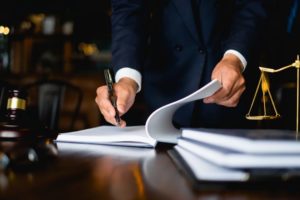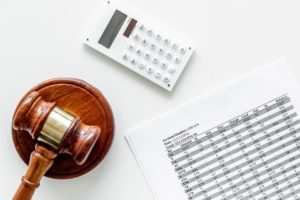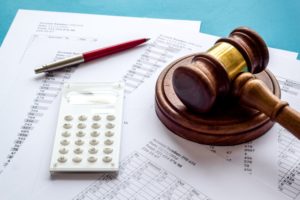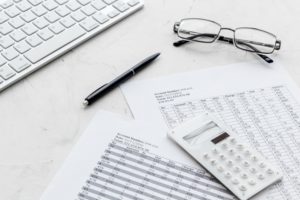
The debts that are not discharged in bankruptcy vary depending on the Chapter of the bankruptcy, as well as other potential factors. If you’re considering filing for bankruptcy, our bankruptcy firm can help you determine which Chapter to file for, and we’ll factor in which debts you may or may not have to repay. In a simple consultation, we’ll explain everything to you in greater detail.
What Debts Are Not Forgiven Under Chapter 7?
According to the U.S. Courts, there are 19 categories of debts that are typically not discharged in bankruptcy under Chapter 7, as well as Chapters 11 and 12. Generally speaking, these non-dischargeable debts include:
- Debts not mentioned at the beginning of the case
- Debts that weren’t dischargeable in a previous bankruptcy
- Debts related to drunk driving cases
- Restitution, fines, and penalties imposed by the government
- Student loans, with some exceptions
- Recent taxes at the federal, state, and local levels
- Alimony and child support
There can be some additional, non-dischargeable debts if a creditor demands the debts in a case. Generally speaking, these debts can include:
- Debts from fraud, theft, or breach of fiduciary duty
- Debts from hostile acts
- Debts from a divorce settlement agreement or court decree
Other debts, such as those for a property, may also not be eligible for discharge under certain circumstances.
What Debts Are Not Dischargeable in Chapter 13?
According to the U.S. Courts, there are fewer debts that are not discharged in bankruptcy under Chapter 13. Generally speaking, these debts include:
- Debts related to certain long-term obligations, like a mortgage
- Debts for government-funded or guaranteed educational loans or benefit overpayments
- Debts for restitution or a criminal fine
- Debts related to drunk driving cases
- Alimony and child support
- Some taxes
There can be additional, non-dischargeable debts if a creditor demands them. Generally speaking, these debts can be:
- Debts from fraud or breach of fiduciary duty
- Debts from hostile acts
- Debts for damages awarded in a civil case
Personal Injury Lawyer Near Me (828) 286-3866
What Debts Are Typically Discharged in Bankruptcy?
Generally, if someone filing for Chapter 7 bankruptcy doesn’t have any nonexempt assets, all of their qualifying debts are discharged, and the person retains all of their assets. However, this may not always be the case.
The case can also be complex with Chapter 13 bankruptcy. With Chapter 13, debts are not discharged until the person completes their payment plan.
Typically, the debts that are discharged include:
- Credit card debts
- Medical debts
- Some tax debts
- Personal loans
How a Bankruptcy Attorney Can Help
A bankruptcy lawyer from our firm can file for the best bankruptcy Chapter for your needs. For instance, your lawyer could research which Chapter would discharge more of your debts.
Additionally, your lawyer can help during mandatory meetings with creditors and trustees. For instance, they can make sure all the documentation reflects accurate information so that you can discharge appropriate debts. They can handle all of the paperwork, which can be quite cumbersome to take on by yourself.
After your bankruptcy is filed and complete, your bankruptcy lawyer can also follow up to make sure that creditors hold up their end of the agreement. The last thing you want is for a clerical error to occur and compromise the outcome of your case.
Cases Our Bankruptcy Lawyers Handle
Our firm handles Chapter 7 and Chapter 13 bankruptcy cases for individuals and small businesses. We can also handle Chapter 11 reorganization bankruptcy and Chapter 12 bankruptcy for family farmers.
If you’re considering filing for bankruptcy, one of our bankruptcy lawyers in North Carolina or South Carolina can explain dischargeable debt, the benefits of bankruptcy, and the process of filing for bankruptcy. You can expect your lawyer to serve as your mentor as well as your advocate during this complicated process.
Our firm believes in excellence in legal representation and client satisfaction. In our time in practice, we’ve been able to serve over 10,000 clients, including many clients in situations like yours. You can be confident in our ability to serve you, too.
Learn More About What Debts Are Not Discharged in Bankruptcy
If you’re considering filing for bankruptcy, our firm can help you in many ways. In a simple consultation, we’ll explain everything you’ll need to know and everything we’ll do for you. Afterward, your bankruptcy attorney will do everything in their power to get your debts discharged, including disputing a creditor’s demands for any debts.
To learn more and consult with us today, contact us at Farmer & Morris Law, PLLC. Our attorneys serve both North Carolina and South Carolina.








